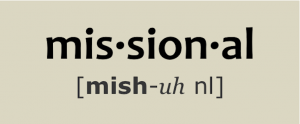My friend and colleague Mike Brown published a revision of his excellent MA (Historical Theology) thesis (Westminster Seminary California) in 2012 as Christ and the Condition: The Covenant Theology of Samuel Petto (1624-1711). As part of the background to explaining Petto, Mike . . . Continue reading →
Author Archives: R. Scott Clark
Economics, Trust, Imputation, and Worth (Updated)
Shocking as it may be, courses in medieval history and theology do not always have immediate relevance to late modern society. There is a theme in medieval history and theology, however, that does illumine what is happening to the global economy. Since . . . Continue reading →
What Is True Faith? (7): Its Object
In the previous installment we considered the role of Scripture in faith. Now we turn to its object. I think they’ve largely gone away but a few years back team-building “trust exercises” were all the rage. The producers even got the Duck . . . Continue reading →
Freedom From Religion Foundation v Lew: What Now? (New Links Added)
Links are being added below. Refresh the page for updates throughout the day. For elders and parishioners and not infrequently for ministers, clergy taxes are one of the more difficult aspects of ministerial finances. Those difficulties just became potentially greater last week. . . . Continue reading →
The Coffer Is Quiet…For Now
But it still exists. It’s still possible to support the Heidelblog—the coffer continues!—but now, when your cursor strays over the coffer and your sound is turned up, you won’t be scared out of your chair. It hasn’t gone away entirely, the sound . . . Continue reading →
Happy Birthday To The Shorter Catechism!
Thanks to Wayne Sparkman for his consistently excellent daily posts. From his keyboard comes a reminder that today is an anniversary of the Westminster Shorter Catechism. On this day in 1647, the House of Commons ordered the printing of the Westminster Shorter . . . Continue reading →
Dorothy Sayers On The Lost Tools Of Learning
By Dorothy Sayers (1947) That I, whose experience of teaching is extremely limited, should presume to discuss education is a matter, surely, that calls for no apology. It is a kind of behavior to which the present climate of opinion is wholly . . . Continue reading →
What Is True Faith? (6) Grounded In God’s Inerrant Word
Last time we saw that faith is a gift. The Evangelical Theological Society met in Baltimore this week. They discussed the inerrancy of Scripture. My former colleague and now frequent critic, John Frame, gave the plenary address defending the inerrancy of Scripture. . . . Continue reading →
November 22, 1963
Fifty Years Ago
Must We “Translate” the Gospel?
David Fitch says and assumes, “yes,” but I doubt it. The “missional” movements are not really fundamentally different from the middle-class, pedestrian “church growth” movements of 25 years ago. They all seem to assume that accommodation is something that we do as . . . Continue reading →
"Sola Fides" is not Sola Fide
I’m reading Rowan Williams on Arius. Early in the book he uses the expression “sola fides.” In context, he seems to be making an indirect reference to the Protestant doctrine of sola fide. I’ve seen this in other writers. When I first noticed . . . Continue reading →
What Is True Faith? (5) A Gift
In the first four parts of this series we looked at what Heidelberg Catechism Q/A 21 says about the three aspects of faith (knowledge, assent, and trust). Faith, however, has an object. It always does. A mere historical faith looks to the . . . Continue reading →
Resources On the Doctrine of Sanctification And The Third Use Of The Law
Apparently, there is only one way to speak about sanctification and it is no longer sufficient to uphold and teach the Heidelberg Catechism, the Belgic Confession, and the Westminster Standards (Reformed confessions) on justification, sanctification, and the third use of the law. . . . Continue reading →
Office Hours: Dennis Johnson On Philippians
When we think of the Pauline epistles we probably think first of Romans or perhaps 1 and 2 Corinthians. Of course, where we’re reading is sometimes determined by controversy. There are lots of controversies associated with Romans and the Corinthian correspondence (election, . . . Continue reading →
Machen’s Enemies Then And Now And The Myth Of Influence
Almost thirty years ago, when I first started to become interested in Reformed Christianity I happened to mention it to the Rev Wally Easter, pastor for evangelism at Westminster Presbyterian Church, in my hometown. Wally was a sweet fellow and very graciously . . . Continue reading →
A Constitutional Crisis?
If civil freedom, including religious freedom, is the relative absence of restraint and the restrainers (those charged authority to uphold the law) are to be constrained by a constitution, then when the constitution is ignored freedom is necessarily jeopardized.
Downtown Escondido

This gallery contains 7 photos.
Are God’s Demands Always Gracious? (Updated)
David Robertson is pastor in the Free Church of Scotland. He has a blog and recently he reviewed Tullian Tchividjian’s latest book, One Way Love. There has been some back and forth and most recently Robertson has written an Open Letter. In . . . Continue reading →
Resources On Fencing The Lord’s Table
Some HB readers have been discussing the question of fencing the Lord’s Table. Fencing is a figurative way of speaking. There aren’t literal fences in Reformed Churches. It’s a way to describe the Reformed attempt to apply Paul’s instruction in 1 Corinthians . . . Continue reading →















